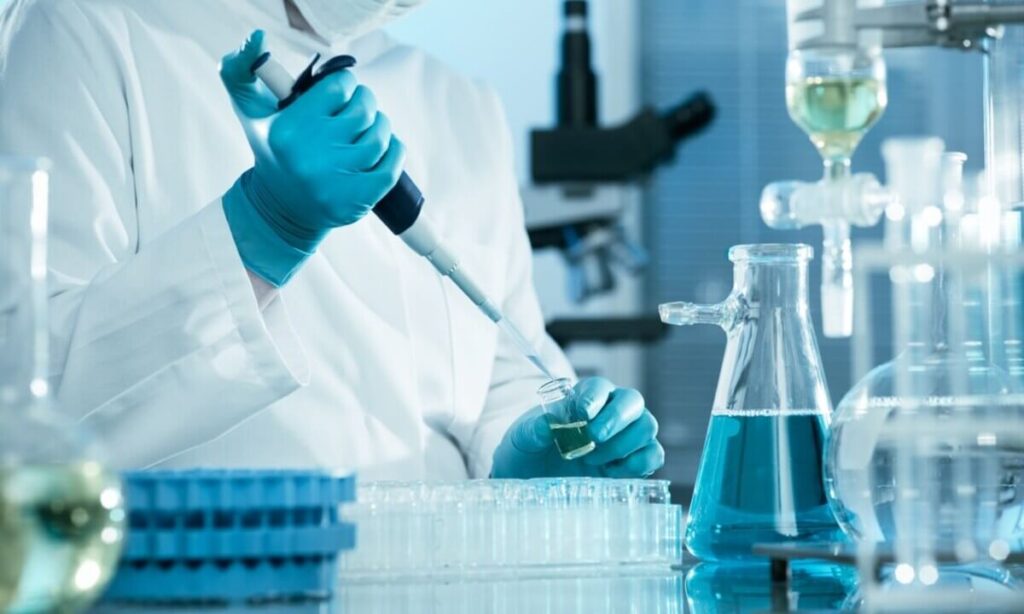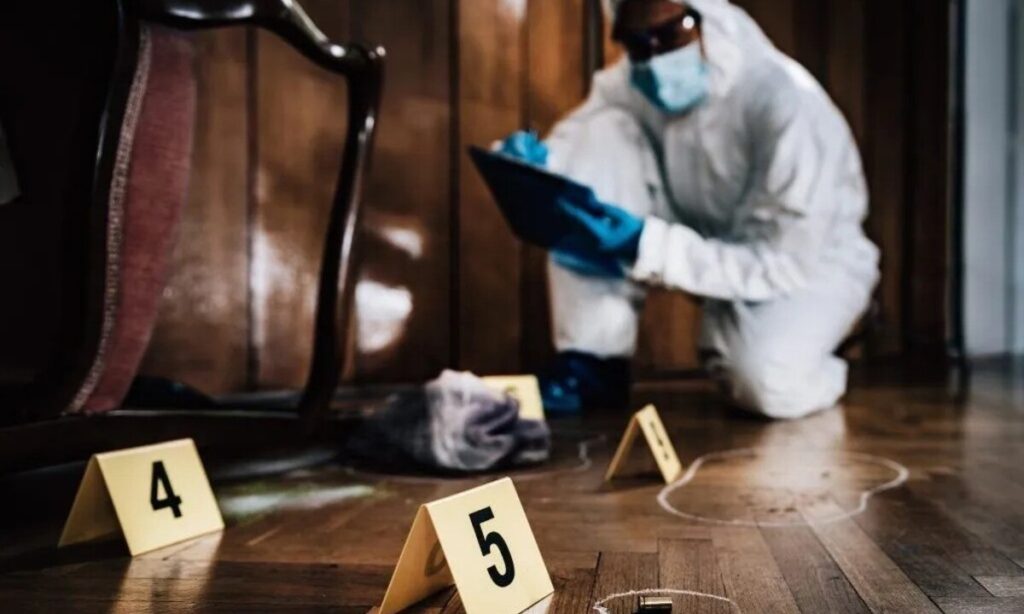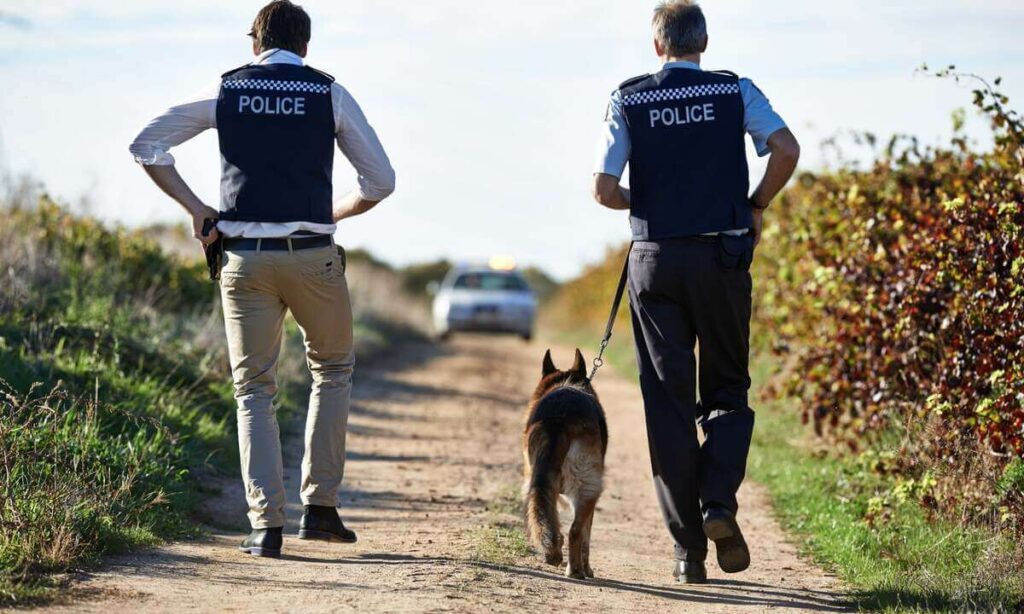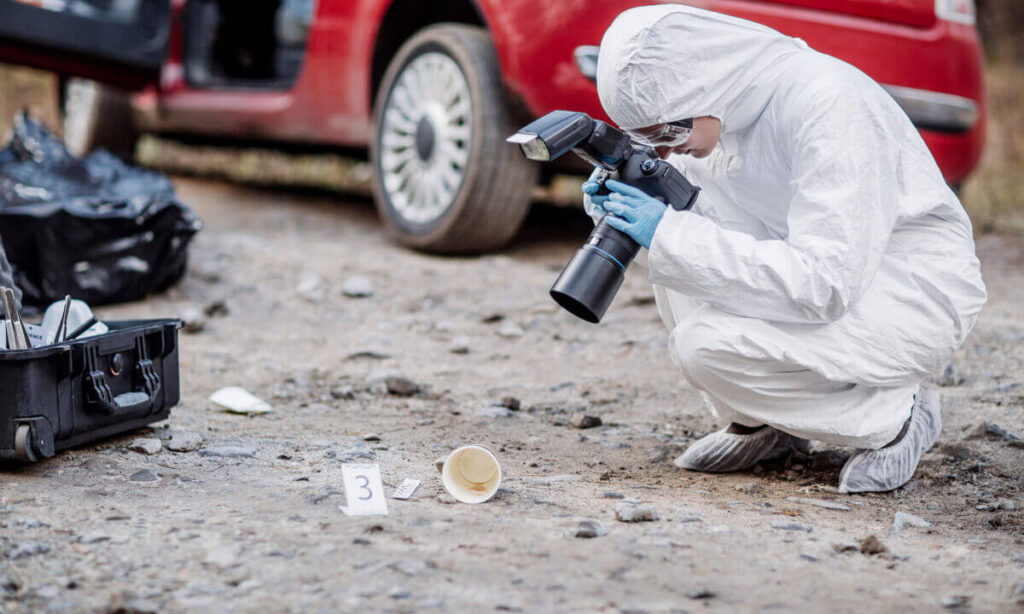Forensic science is an enthralling field that blends science and criminal justice in order to solve crimes and offer victims justice. It includes many fields, including as biology, chemistry, physics, and psychology. Forensic scientists are essential in gathering and evaluating evidence to aid criminal investigations. This post will provide a comprehensive instruction on how to become a forensic scientist. Continue reading to find out more!
What does a forensic scientist do?
Forensic scientists are in charge of collecting and analyzing physical evidence obtained at crime scenes. They analyze fingerprints, DNA, trace evidence, and other data using sophisticated techniques and equipment. Forensic scientists help law enforcement agencies solve crimes and present evidence in court by painstakingly documenting and evaluating evidence.
Forensic scientists collaborate with a variety of other specialists, including crime scene investigators, police officers, and lawyers. They may be called as expert witnesses to testify in court, giving their findings and insights. Their work is critical to the integrity of the criminal justice system.
Steps to Become a Forensic Scientist
How can you become a forensic scientist? First of all, we must understand forensic scientist requirements and prerequisites. Here are the three steps on how to become a forensic scientist:
1. Education
The first step toward becoming a forensic scientist is to obtain the necessary education. A bachelor’s degree in forensic science or a related discipline such as chemistry, biology, or criminal justice is often required. To assure the quality and relevance of your education, you must enroll in a program certified by the Forensic Science Education Programs Accreditation Commission (FEPAC).
During your undergraduate studies, you will learn about many scientific ideas and techniques utilized in forensic science, such as DNA analysis, fingerprinting, toxicology, and crime scene investigation. You will also gain valuable skills in data analysis, critical thinking, and attention to detail.
Following completion of your bachelor’s degree, you may choose to pursue a master’s or doctoral degree in forensic science to further specialize in an area of interest. While advanced degrees are not always required, they can considerably improve your knowledge and career chances in this competitive sector.
2. Internships and Training Programs
Participating in internships and training programs is critical for gaining practical experience and improving your employability. Internships in several forensic disciplines are available at many institutions and forensic laboratories for undergraduate and graduate students. These internships provide you with the opportunity to work with seasoned specialists, acquire sophisticated laboratory procedures, and watch real-world forensic investigations.
Furthermore, professional organizations and government bodies provide specialized training programs in specific fields of forensic science. These programs offer intense training and courses on a variety of areas, including crime scene processing, forensic DNA analysis, firearms testing, and digital forensics. Participating in these programs can provide you with a competitive advantage as well as demonstrate your dedication to professional growth.
3. Professional Certification
Although not required, professional certification can boost your credibility and job chances as a forensic scientist. The American Board of Criminalistics (ABC) certifies forensic scientists in a variety of fields such as biology, chemistry, and toxicology. To be eligible for certification, you must achieve particular educational and experience requirements as well as pass a thorough examination.
Certification validates your expertise and adherence to professional norms, making you a more appealing candidate for career prospects and advancement. It also offers continuing professional development opportunities and networking resources to help you keep up to date on the newest advances in forensic science.
Forensic Scientist Required Skills and Qualities
To be a great forensic scientist, you must have a mix of technical skills, analytical thinking, and human attributes. Here are some crucial abilities and attributes to cultivate:
- Scientific Knowledge: Understanding and efficiently implementing forensic procedures requires a good basis in scientific ideas and methodologies. You should be well-versed in chemistry, biology, physics, and mathematics.
- Attention to Detail: Examining minute details and acquiring information from numerous sources is common in forensic analysis. Detail-oriented thinking is required to provide proper evidence processing and interpretation.
- Critical Thinking: As a forensic scientist, you will deal with difficult cases and ambiguous evidence. The capacity to think critically and assess several options is essential for arriving at appropriate conclusions and presenting findings in court.
- Problem-Solving Skills: The goal of forensic science is to solve puzzles and reconstruct occurrences. Strong problem-solving abilities combined with creativity can assist you in finding novel solutions and overcoming obstacles in investigations.
- Communication Skills: Collaboration with colleagues, presenting results in court, and drafting clear and succinct reports all require effective communication. You should be able to explain complex scientific concepts to a variety of audiences.
- Ethical Conduct: Forensic scientists must retain objectivity and neutrality in their work while adhering to high ethical standards. In this career, integrity, honesty, and respect for secrecy are required.
Specializations Within Forensic Science
Forensic science comprises several disciplines, each specialized in a distinct area of research. Here are some common forensic science specializations:
- Forensic Pathology: In circumstances involving suspicious or violent deaths, forensic pathologists conduct autopsies and identify the cause of death. They collaborate closely with law enforcement and offer expert testimony in criminal proceedings.
- Forensic Toxicology: Forensic toxicologists examine bodily fluids and tissues for the presence of drugs, alcohol, and other toxic substances. They are critical in situations involving drunk driving, drug-related crimes, and suspicious fatalities.
- Forensic DNA Analysis: Forensic DNA analysts analyze DNA samples acquired from crime scenes and compare them to prospective suspects using modern procedures. This specialty is useful in detecting offenders and exonerating innocent people.
- Forensic Anthropology: Forensic anthropologists examine skeletal remains to establish the deceased’s age, gender, and ethnicity. They aid in the identification of human remains in major disasters, killings, and historical inquiries.
- Digital Forensics: With the increased usage of digital devices in criminal operations, digital forensics has emerged as a key specialty. To aid investigations, digital forensic experts recover and analyze electronic evidence such as emails, documents, and photos.
Job Prospects and Salaries in Forensic Science
Forensic scientists have bright work prospects, with a consistent growth rate projected in the future years. Forensic scientists can work for federal, state, and municipal law enforcement agencies, forensic laboratories, medical examiner’s offices, and private consulting organizations, among others.
As of May 2022, the median annual wage for forensic science technicians was $63,740, according to the U.S. Bureau of Labor Statistics. Salaries vary according to experience, education, specialization, and geographic location. Forensic scientists with advanced degrees and specialized certifications typically earn greater wages and have more prospects for progress in their careers.
FAQs on how to become a forensic scientist
1. What are forensic scientists?
Forensic scientists are specialists who study physical evidence and aid in criminal investigations using scientific ideas and techniques. They are critical in collecting, conserving, and evaluating evidence discovered at crime scenes. Forensic scientists collaborate closely with law enforcement, attorneys, and other professionals to give scientific support and expert evidence in court.
2. What degree do you need to be a forensic scientist?
A bachelor’s degree in forensic science or a similar subject is normally required to become a forensic scientist. Some specialized occupations, however, may necessitate a master’s or Ph.D. degree. It is critical to select a program that provides a thorough curriculum that covers numerous parts of forensic science, such as biology, chemistry, physics, and mathematics.
3. Is schooling for forensic science hard?
While the area of forensic science might be difficult, it is also extremely rewarding. The curriculum can be challenging because it demands a solid foundation in scientific ideas as well as analytical skills. However, prospective forensic scientists can overcome these obstacles and flourish in their studies with dedication, hard effort, and a passion for the subject.
4. How do I become a forensic scientist in 2024?
To become a forensic scientist in 2024, follow the steps outlined in this guide. Begin by earning a bachelor’s degree in forensic science or a closely related discipline from a reputed university. Internships and training programs can help you gain practical experience. Consider getting a graduate degree to expand your knowledge and talents. Finally, get professional certification to improve your credentials and work possibilities.
Conclusion
To summarize, being a forensic scientist is a gratifying and difficult journey that necessitates a solid educational foundation, practical experience, and a distinct set of talents. You can start a successful career in forensic science by following the stages given in this guide, obtaining the essential abilities and attributes, and concentrating in a specific area of forensic science. To flourish in your forensic science job, stay up to current on innovations in the field, network with specialists in the industry, and always seek chances for professional development.
Did you find this article helpful? Check out our article on the 12 Most Popular Careers in Crime Scene Investigation (CSI). Thank you for reading!






